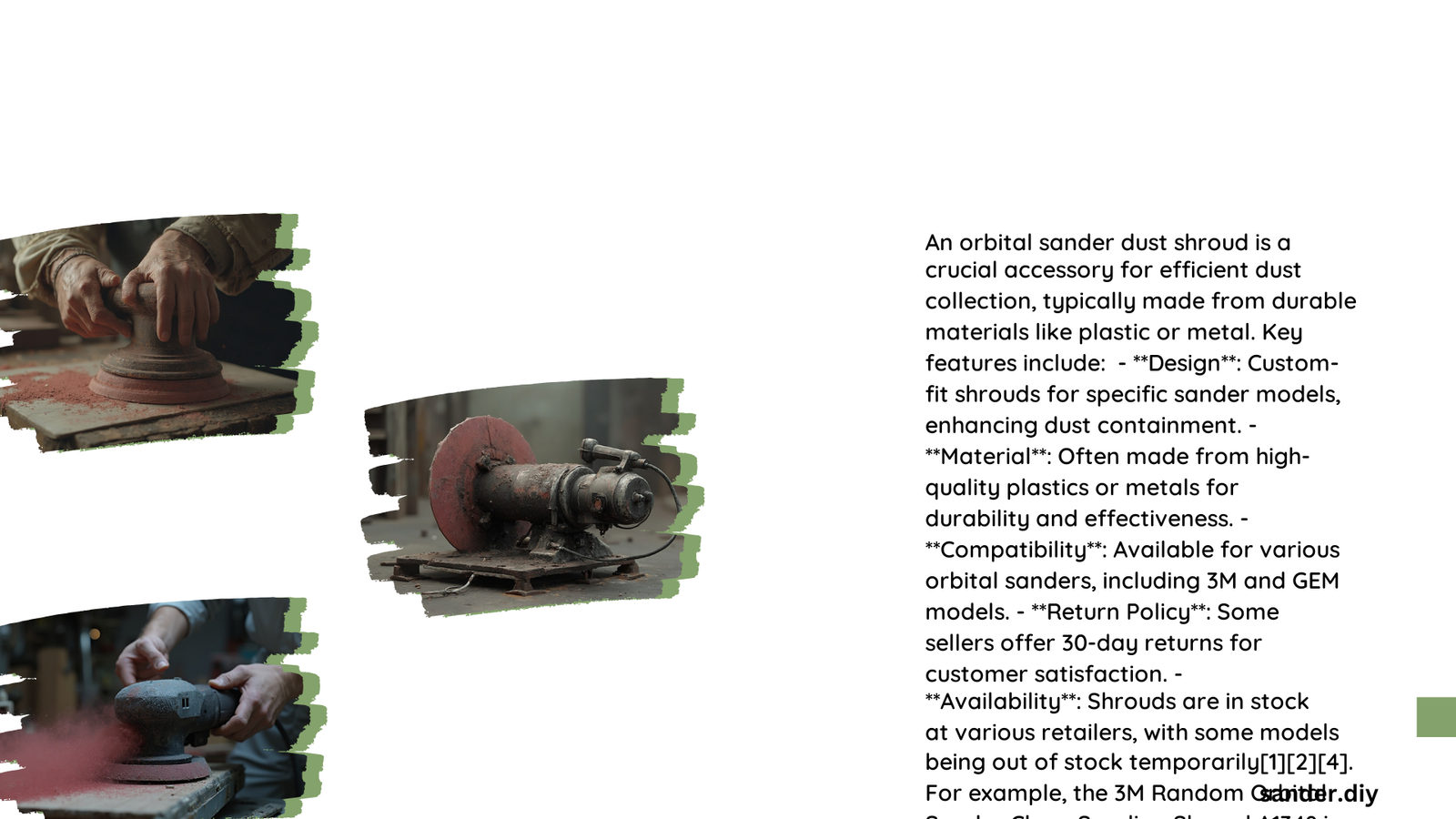An orbital sander dust shroud is a critical accessory for woodworkers and professionals seeking superior dust management during sanding operations. These specialized attachments connect directly to sanders and vacuum systems, capturing dust particles at the source, minimizing workplace contamination, protecting respiratory health, and maintaining a clean working environment while extending tool and abrasive lifespan.
What Makes Orbital Sander Dust Shrouds Essential?
Dust shrouds represent more than simple attachments – they are comprehensive dust management solutions designed to address multiple workshop challenges. By creating a sealed environment around sanding surfaces, these ingenious devices capture microscopic particles before they disperse into the air.
Why Do Professionals Prioritize Dust Shrouds?
- Health Protection
- Prevents respiratory hazards
- Reduces airborne particulate exposure
-
Minimizes long-term health risks
-
Equipment Preservation
- Prevents dust accumulation in tool mechanisms
- Extends sander and vacuum system longevity
- Maintains optimal tool performance
What Are Key Characteristics of High-Quality Dust Shrouds?
| Feature | Description | Importance |
|---|---|---|
| Material Durability | Metal or high-grade plastic | Ensures long-term reliability |
| Vacuum Port Compatibility | Standard 1.5-2 inch connections | Facilitates easy attachment |
| Adjustability | Flexible mounting options | Accommodates various sander models |
How Do Different Dust Shrouds Compare?

Diamabrush 5-in Hand Tool Shroud
- Dimensions: 3.5 x 5 x 5 inches
- Construction: Solid metal
- Compatibility: Fits Makita and DeWalt angle grinders
- Unique Feature: 1.5-inch vacuum port with potential air-tight modifications
Mirka DEROS RS Dust Shroud
- Specialized Design: Engineered specifically for Mirka DEROS RS sanders
- Dust Collection: Optimized channeling of microscopic particles
- Performance: Superior suction and debris management
What Installation Techniques Ensure Maximum Effectiveness?
Proper Mounting Strategies
- Carefully align rotating indicators
- Secure shroud without restricting tool movement
- Use appropriate tools like Allen wrenches
- Apply duct tape for air-tight connections if necessary
What Troubleshooting Techniques Address Common Challenges?
Resolving Fit and Performance Issues
- Check shroud compatibility before purchase
- Use heat (hair dryer) to adjust plastic shrouds
- Verify vacuum port connections
- Ensure no interference with tool rotation
Expert Recommendations for Orbital Sander Dust Shroud Selection
Critical Selection Criteria
- Precise dimensional matching
- Material quality
- Vacuum system compatibility
- Brand-specific design considerations
Safety and Maintenance Tips
Dust Shroud Best Practices
- Regular inspection for wear
- Clean vacuum ports
- Replace damaged components promptly
- Use appropriate personal protective equipment
Conclusion
Orbital sander dust shrouds represent a critical investment in workplace safety and tool performance. By understanding their nuanced characteristics and implementing proper selection and maintenance strategies, professionals can significantly enhance their sanding operations.
Pro Tips
- Always prioritize compatibility
- Invest in quality shrouds
- Maintain consistent cleaning protocols
Reference:
– Diamabrush Product Information
– Mirka Dust Shroud Details
– US Sander Accessories
